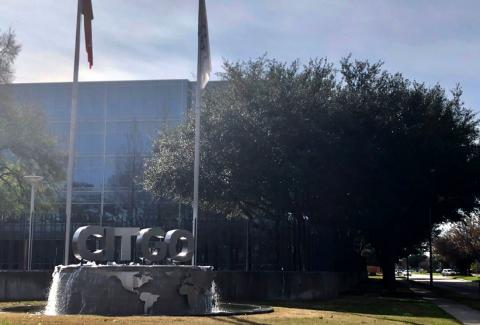Advertisement
Refiner Citgo prepares to fend off Venezuela's opposition government
MEXICO CITY/CARACAS (Reuters) - Venezuela's most important foreign asset, its $10 billion U.S. refining arm Citgo Petroleum, is hunkering down to arm itself with a legal strategy to block efforts for its board to be removed and its revenues diverted to an opposition government, sources close to the talks said.
Juan Guaido, the head of the opposition-controlled congress who proclaimed himself president this week, is considering naming a new team to lead Citgo, two sources told Reuters.
But President Nicolas Maduro said in Caracas on Friday that his government would seek to defend the refiner, raising the prospect that Citgo, run by Maduro appointees, could become a battleground between the two claimants to the leadership of Venezuela.
"Citgo is the property of the Venezuelan state," Maduro said, adding that the OPEC-member country plans to continue selling oil to the United States, its first destination for crude exports and state-run PDVSA's largest source of cash.
The United States led numerous other Western Hemisphere nations in recognizing Guaido as president of Venezuela this week. The White House has been exploring ways to redirect oil revenues to the opposition, but the path to engineering such a move is unclear.
Citgo is a wholly-owned subsidiary of Petroleos de Venezuela, or PDVSA, but it has not been able to send its revenues, in the form of dividends, to Venezuela due to U.S. sanctions.
Citgo's board earlier this week traveled to the Bahamas, where a company office was installed last year. It will seek legal avenues for the team to continue leading the firm, two company sources said.
Citgo President Asdrubal Chavez has been called to meetings in Caracas, according to those sources. He is the cousin of late President Hugo Chavez, who preceded Maduro.
A Citgo vice president separately traveled to Washington this week for talks on the company's future, the sources added.
"Citgo is registered in Delaware. It belongs to Venezuela, which now has two presidents. The United States only recognizes one, but that is not the one who appointed people at Citgo's board," one of the sources said, explaining the legal challenges.
The Houston company's 750,000-barrel-per-day refining network is the biggest U.S. importer of Venezuelan crude. A spokeswoman at Citgo said executives were not being made available for interviews at this time.
For the first nine months of 2018, Citgo posted net income of about $500 million from $23 billion in gross sales and had $3.4 billion in financial debt, according to a creditor with access to its balances, which are not public.
A Venezuelan opposition source familiar with Guaido's plans said the goal of the Citgo effort was to "raise funds."
But it is unclear whether any effort to divert funds from Maduro-controlled PDVSA or its subsidiaries would succeed.
"I don't think that the Trump administration has the right to tell anybody where the oil revenues are going to go – certainly not at this stage," said Michael Fitzgerald, a partner at Paul Hastings who focuses on Latin America.
EXTERNAL PRESSURE
Some creditors of Venezuela have engaged in the long legal process of trying to squeeze payments out of Caracas by pursuing Citgo. However, those creditors now run the risk of getting little in return for millions of dollars spent on legal fees if the United States moves against Venezuelan assets on its territory.
At the end of September, the company had almost $500 million in cash and an available $900 million credit line, the creditor said. The company is "building cash," said S&P Global Ratings credit analyst Stephen Goltz, because of the U.S. sanctions
The White House earlier this month resumed talks with U.S. oil firms to explore new sanctions on Venezuela, including an embargo on Venezuelan crude sales to the United States and a prohibition on U.S. firms exporting fuels to the South American country.
The White House has resisted imposing an embargo on imports from Venezuela, in part because of opposition from U.S. refiners strapped for supply of heavy crude oil.
U.S. refiners currently import about 500,000 barrels of oil daily from Venezuela. Much of the demand comes from complex refiners on the Gulf Coast that use the crude to make high-margin products like diesel.
(Reporting by Marianna Parraga in Mexico City and Corina Pons in Caracas; additional reporting by Brian Ellsworth in Caracas, Gary McWilliams and Laila Kearney in Houston, Luc Cohen in Bogota, Jessica Resnick-Ault in New York, and Tom Hals in Wilmington; Editing by Rosalba O'Brien)



















Add new comment